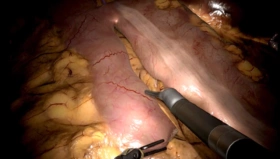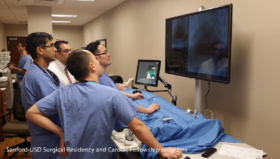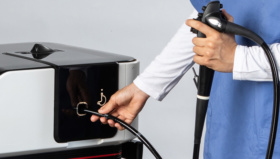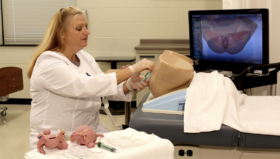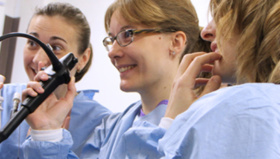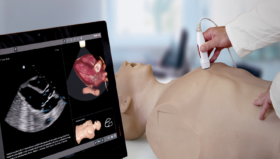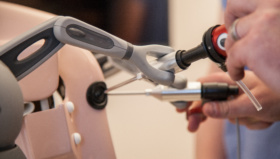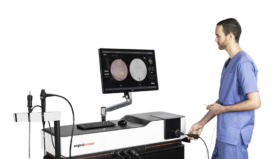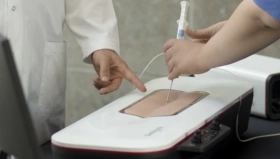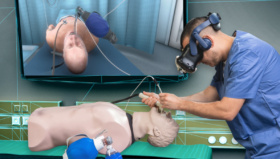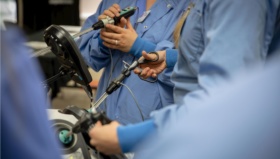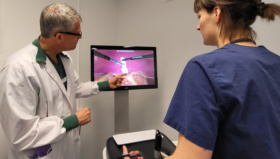Simulator-Based Learning Enhances Prenatal Care Skills
In a presentation at the ISUOG World Congress, Dr. Johannes Steinhard, Head of Fetal Cardiology Department, HDZ-NRW, Ruhr-Universitat Bochum, Germany shared his expertise within a validated approach to transform prenatal care training.
Dr. Steinhard’s presentation emphasized the use of simulators as a novel tool for medical education, shedding light on a study that involved medical students undergoing training with the Ultrasound Mentor simulator. This simulator-based approach is already highly improving education globally but has the potential to expand additional in the way medical professionals acquire essential sonographic skills, improving the quality of prenatal care.
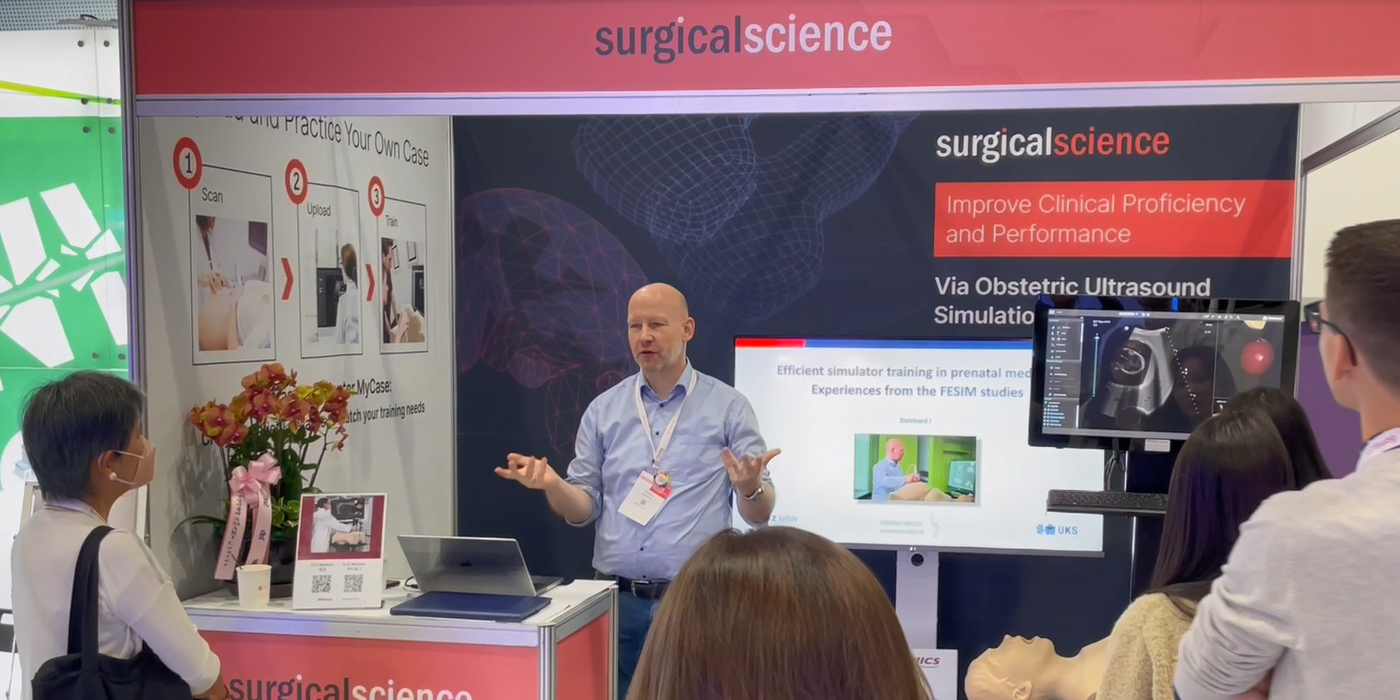
A Paradigm Shift in Medical Training
Traditionally, medical training has been reliant on real-life experiences and interactions with patients. However, the use of simulators, offers a shift to proficiency-based training, away from patients.
Ultrasound Mentor, the simulator used in Dr. Steinhards validation studies, allows students and physicians to hone their skills in a controlled environment, enabling a more efficient and standardized training. This approach is used and can be more widely used in prenatal care, where early and accurate diagnosis is paramount.
Independent Practice for Rapid Skill Development
One of the key elements of the simulator-based training was the emphasis on independent practice. Dr. Steinhard noted that participants could work alone, without any guidance from instructors or peers. The freedom to practice independently is intended to accelerate skill development and build confidence in performing basic and critical procedures.
Measurable Progress and Expert-Level Proficiency
The results in the study Controlled prospective study on ultrasound simulation training in fetal echocardiography: FESIM II were impressive. Over six weeks, participants in the training program, with minimal to no previous experience, showed significant improvements in their scanning skills.
The simulator-based training provided a structured and effective means of evaluating and improving skills with two one-hour training sessions per week. Skill testing occurred at various intervals, with participants being assessed after two weeks, four weeks, and six weeks of training. The results displayed a notable progression in skill levels over time, matching the capabilities of seasoned professionals.
Implications for Prenatal Care
The implications of this training approach for prenatal care are profound. Early detection and accurate diagnosis are critical in ensuring the well-being of both mother and child. Late diagnoses can lead to adverse outcomes, making the adoption of such training methods increasingly important.
Challenges and Opportunities
Dr. Steinhard acknowledged that while simulator-based training has shown significant promise, the cost of acquiring simulators and establishing the necessary infrastructure is an investment that needs to be made. However, the investment is outweighed by the potential benefits and the long-term improvement in medical practice that can be achieved.
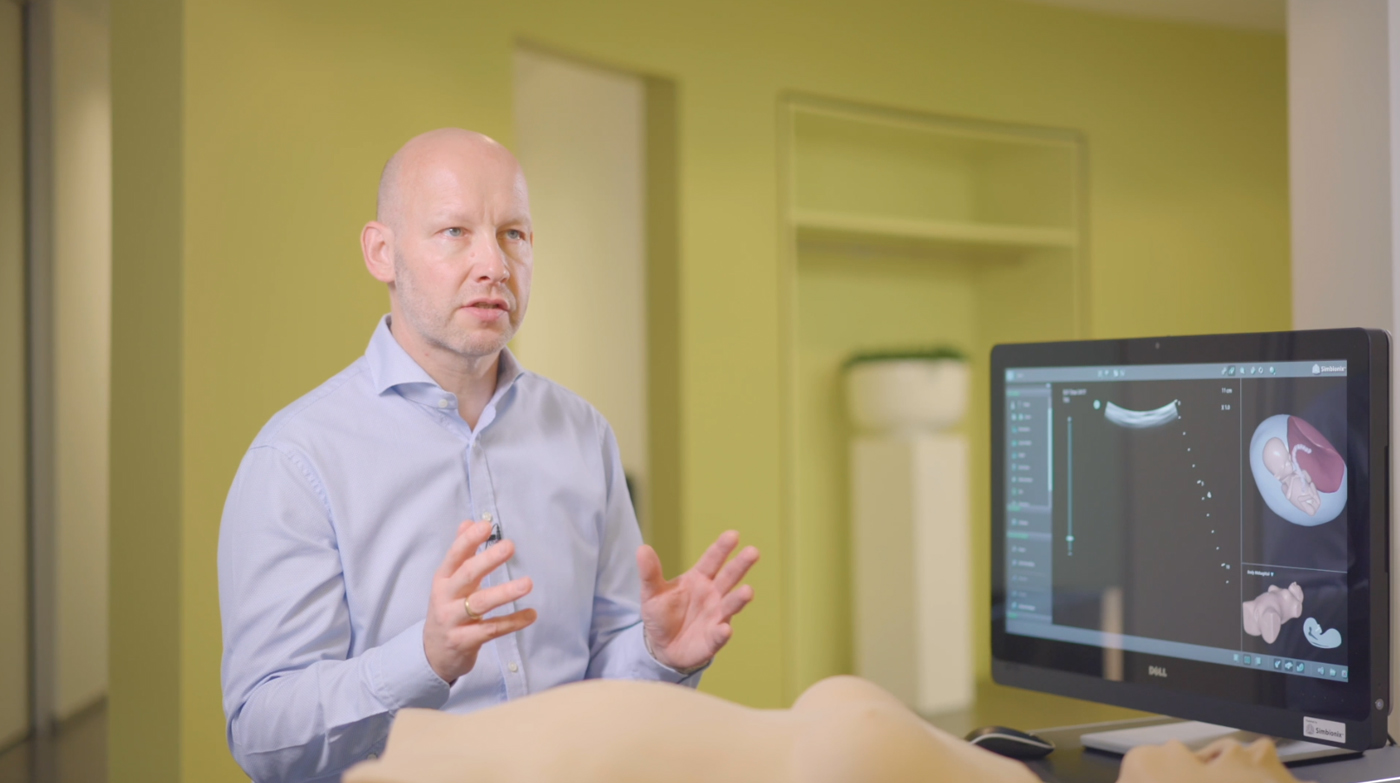
Recommendations for the Future
Dr. Steinhard emphasized the effectiveness of simulator-based training, particularly for beginners in prenatal care. He recommended the integration of simulator-based training into medical education, highlighting that it provides an excellent means of rapidly improving critical skills.
In addition to the individual training, Dr. Steinhard demonstrated how simulators can be used to explain diagnostic procedures to patients, making them more informed and engaged in their healthcare decisions.
As the medical community strives for excellence in patient care, it is apparent that simulator-based training with Ultrasound Mentor is a powerful tool that promises to bridge the gap between theory and practice, improving the standard of prenatal care and beyond.
Presentation by: Dr. Johannes Steinhard, Head of Fetal Cardiology Department, HDZ-NRW, Ruhr-Universitat Bochum, Bad Oeynhausen, Germany.
Learn more about Ultrasound Mentor.
